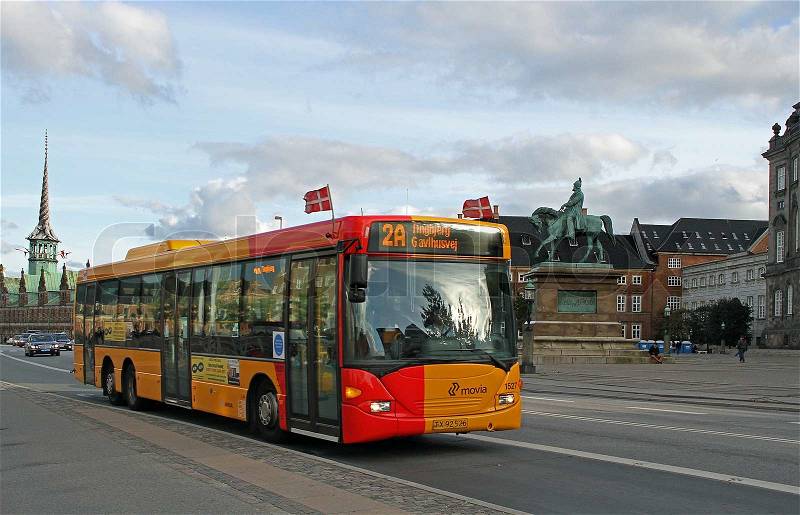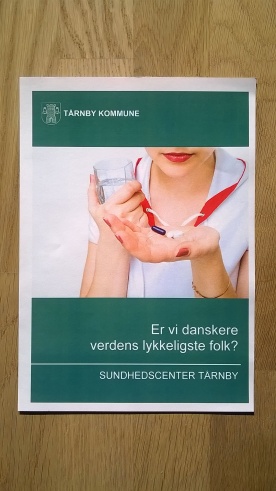The number of elderly immigrants with dementia is increasing
Written by Anders Reinholdt September 24, 2014
In the future, there will be significantly more elderly immigrants with dementia, and by 2040 as much as 67 per cent of the older immigrants will be from non-Western countries. This provides a number of challenges in the health services and care sector.
The Migration School is the largest training in the care of minority groups in Scandinavia and the first research projet in Europe which has focused on diagnostic methods associated with dementia. It writes the Capital Region in a press release.
Doctors and caregivers in dementia often face a number of challenges in working with people with a cultural and linguistic background far from the Danish.
Neuropsychologist Rune Nielsen PhD, of the National Dementia Research Center and head of the Danish part of the project, explains:
First, older immigrants are generally less likely to seek medical advice in connection with memory problems. Second, the health care sector often has difficulty diagnosing those who do seek help because of language and cultural barriers. And thirdly, Denmark has no special care services that meet the often different needs of elderly immigrants who actually are given a dementia diagnosis.
Memory Failure is a natural part of aging
The reason why immigrants are less likely than other citizens to seek help if memory fails is partly due to the lack of general knowledge about dementia, and partly due to many viewing dementia as a shameful disease that you do not talk about.
There is a lot of work in raising awareness about what dementia is and that there is help at hand. We assume that only about 10 per cent of the expected number of immigrants with dementia are actually being diagnosed by a doctor. In other words, there are many who go around without getting the help they need, says Rune Nielsen.
Diagnostic tools are suitable only for Danish language and culture
The few immigrants who seek medical assistance risk a worse clinical investigation than patients with the Danish language and cultural background. The result is often less accurate diagnosis.
The diagnostic tools that doctors and neuropsychologists use are based on the patient attending a Danish school and being familiar with Danish culture. (For example, the cognitive tests used in Denmark would include questions about Danish current events, such as the current Prime Minister, and common phrases in Danish – all of which are relevant to the culture and language). But many older immigrants have low education and in many cases are also lacking a general understanding that it requires many studies and many visits to the clinic before the doctor can reach a potential diagnosis.
Just the fact that the diagnostic tools require knowledge of the Danish language and culture is a significant problem. By comparison, an older person who was born and raised in Denmark would face the same challenges to be thoroughly examined for cognitive problems in England, for example, although they may speak the English language, says Rune Nielsen.
New cross-cultural test methods
There is therefore a need for new cross-cultural diagnostic tools when a suspected dementia diagnosis should be confirmed or denied. But dementia often results in changes in personality and behavior, which can make it very difficult for the relatives to provide the care.
Today, it is about 7% of all Danes older than 65 years who live in nursing homes, while only 1% of the older non-Western immigrants in Denmark living in a nursing home.
There can be many reasons that immigrant families do not send their elders to a Danish care center. Firstly, care centers are either linguistically or culturally attuned to their health and care responsibilities. Secondly, there is an economic aspect, where some immigrant families simply cannot afford nursing home care. And third, there is a tradition for – and expectation – that the children take care of the older generation. But this not always in harmony with the Danish housing and culture, where it is the norm that all adults in the household work outside the home.
Diversity Nursing Homes
Denmark has two diversity nursing homes, in Aarhus and Copenhagen. They can be seen as the first step in relation to equip the Danish care sector for the growing group of senior citizens with different cultural and linguistic backgrounds. Whether this is sufficient to address the growing needs and the many, often complex, issues related to cross-cultural care, only the future will tell.









